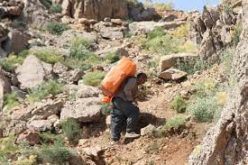Al-Arabia – In October 1981, Nasr City in Cairo witnessed a military parade marking the eight-year anniversary of the 1973 Arab–Israeli War. Then-Egyptian President Mohamed Anwar Sadat was in the first line of the audience in the ceremony to which guests from inside and outside Egypt were invited to.
It was a great national event for Egyptians and the Arab world, but the celebration was marred when Sadat was shot. Three armed officers got out of their car in the parade when it passed near the main platform and ran towards Sadat to make sure he was killed after one of them shot him from the car. Although this happened within seconds, the scene was full of critical details. All of the shooting and firing of bullets took place within minutes.
The goal of the Islamist assassins was to eliminate President Sadat after they deemed him an infidel for signing the Camp David Treaty, which restored Egyptian land from Israel. The incident resulted in the death of Sadat, who had several bullet wounds on his body. Two of his foreign guests and some employees were also shot. Vice President Mohamed Hosni Mubarak, who was sitting to the right of Sadat, and Defense Minister Abd al-Halim Abu Ghazala, who was to his left survived the attack.
A security breach of a military parade of this magnitude is undoubtedly a sign of weakness within Iran’s military establishment, a kind of weakness that the United States is relying on as a result of economic pressure
Amal Abdulaziz Al-Hazani
The president’s secretary tried to block bullets being fired on Sadat and held up a chair, while a Republican Guard officer shouted at the president to stay on the ground after he noticed that Sadat stood up after receiving the first bullet. The perpetrators were injured; three were arrested and the fourth got arrested later. They were tried and executed by a firing squad.
The platform incident in Cairo had a clear aim and motivation. Everyone seen trying to protect the president and avoid being shot.
A similar armed attack took place in the southern Iranian city of Ahwaz during a military parade marking the anniversary of Iran-Iraq war. Iranian President Hassan Rouhani was not personally present at the parade, but was linked up via television. What happened there raises many questions when we compare it to the Egyptian incident.
The Ahwaz attack
In Iran, the state did not know the identity of the attackers for more than a day, because its enemies inside Iran are more than its enemies outside. The state thus didn’t know who was behind the attack. Then the government decided to exploit the incident politically. It accused the United States of America, the superpower, of standing behind the attack so that the military and the Revolutionary Guards that claim victories in Iraq, Syria, Lebanon and Sanaa and threaten Tel Aviv do not appear soft and easy-to-penetrate on an occasion that should have been under their tight control and properly monitored.
The leaked video of the incident shows how everyone on the platform immediately ran on hearing the shooting, and if Rouhani was around they might have left him to suffer his fate.
The army, which was showing off its power was exposed as weak during the parade and took a purely defensive stand.
OPINION: How will the Iranian Revolutionary Guards respond to the Ahwaz attack?
The incident is interesting not because both ISIS and the Arab Struggle Movement for the Liberation of Ahwaz took responsibility for the attack but because the perpetrators may be from Ahwaz itself or Kurd or Baloch or Syrians or Iraqis or Lebanese. Iran has made enough enemies from peoples and races to sleep with one eye closed and the other open.
A security breach of a military parade of this magnitude is undoubtedly a sign of weakness within Iran’s military establishment, a kind of weakness that the United States is relying on as a result of economic pressure.
The least we can say is that Iran, which sends its Revolutionary Guards to other countries to ignite wars, is supposed to ensure its strength at home, especially as it operates directly under the Supreme Leader himself.
It is easy for the Iranian government to accuse Washington of being behind the training and arming of the attackers because that would be part of an announced war between the two countries. But the United States has been clearer and said from the start that Iran can expect internal disruption as a result of the economic crisis. Consequently, the party responsible for this attack is the government of the Vilayat al-Faqih, which has exerted enough pressure and caused marginalization of minorities, including the people of Ahwaz, and provoked them to act in such ways that they believe as legitimate, since they’re against military elements.
This article is also available in Arabic.
_____________
Amal Abdulaziz Al–Hazani is a professor at King Saudi University and a writer for al-Sharq al-Awsat. She tweets @Alhazzani_Amal.
 Shabtabnews In this dark night, I have lost my way – Arise from a corner, oh you the star of guidance.
Shabtabnews In this dark night, I have lost my way – Arise from a corner, oh you the star of guidance.


